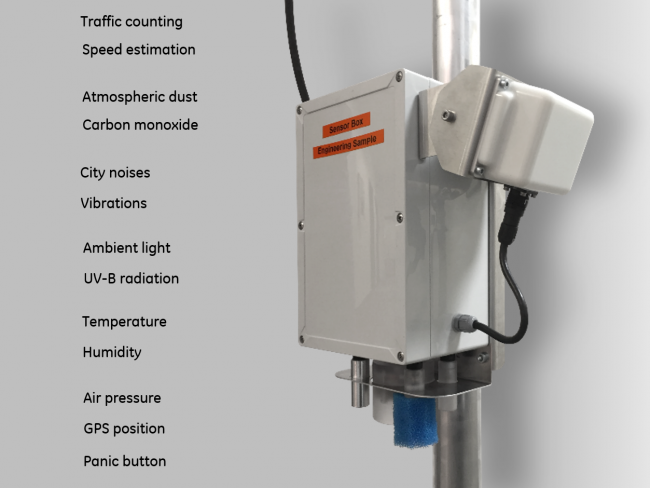Analyzing Sensor Networks for Smart Cities
The Research Laboratory on Engineering & Management Intelligence developed a prototype Analytical Module, commissioned by GE Hungary Kft., as part of a smart city project. The project aims at building a wireless sensor network installed on a public lighting system in the XII. District of Budapest, Hungary.
Sensor networks are crucial components of smart cities, as the data they gather are fundamental for keeping the public and the decision-makes informed. For example, this information could be used to ensure a healthy and energy efficient environment, e.g., for traffic management and smart grids. The wireless sensor network installed in the XII. District of Budapest gather information about particle dust, environmental temperature, ultraviolet irradiation, ambient light, air pressure, relative humidity, carbon monoxide, as well as traffic- and noise levels.
The main goal of the module, which has a cloud-based implementation, is to analyze the gathered data based on advanced signal processing and statistical learning techniques. The main functionalities of the module include generating forecasts and smoothed maps for the measured quantities, both accompanied by reliability estimations.
The work was supported by the National Research Development and Innovation Office under contract number ERNYŐ_13_1_2013-0011.
